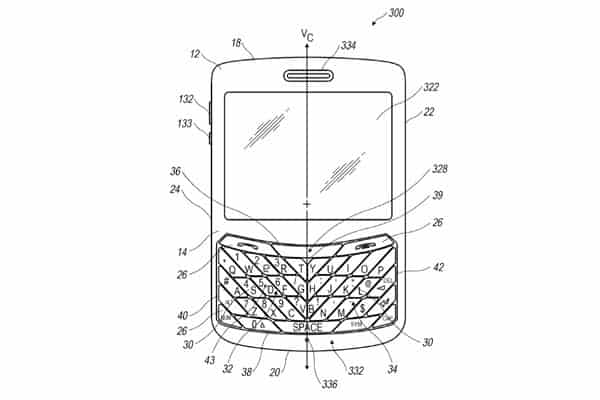
 BlackBerry’s (TSX:BB, Nasdaq:BBRY) most recent quarter was this week cheered as better than expected, but Cormark analyst Richard Tse was looking at the story behind the story.
BlackBerry’s (TSX:BB, Nasdaq:BBRY) most recent quarter was this week cheered as better than expected, but Cormark analyst Richard Tse was looking at the story behind the story.
On Friday, BlackBerry reported its Q3, 2016 results. The company lost (U.S) $89-million on revenue of $557-million, a 14 per quarter-over-quarter topline bump.
“I am pleased with our continued progress on BlackBerry’s strategic priorities, leading to 14-per-cent sequential growth in total revenue for Q3. We delivered accelerating growth in enterprise software and higher revenue across all of our areas of focus,” said CEO John Chen. “Our new PRIV device has been well received since its launch in November, and we are expanding distribution to additional carriers around the world in the next several quarters. “BlackBerry has a solid financial foundation, and we are executing well. To sustain our current direction, we are stepping up investments to drive continued software growth and the additional PRIV launches. I anticipate this will result in sequential revenue growth in our software, hardware and messaging businesses in the fourth quarter.”
Tse says that for him, the focus of this quarter was not the Priv, the new BlackBerry device that is powered with an Android operating system, it is the company’s gradual move towards software, not hardware, as the primary source of its revenue. The analyst says that while it is still early in the company’s transition, the third quarter results showed a “steady progression”. He says he regards the company’s announcement that it booked 2713 enterprise wins in the quarter as a “shocking” positive, noting that 70 per cent of its software revenue is recurring.
Tse says while BlackBerry builds traction towards what he thinks will result in at very least a “meaningful niche brand”, many are forgetting about the positives in the company that comprise a value argument for it, namely its $2.71-billion in cash, cash equivalents, short-term and long-term investments and, not unimportantly, its intellectual property.
“If you have followed BlackBerry, even remotely, you will know that one of the big questions when it comes to valuing the stock, whether it is to determine the base value for the stock is the value of BlackBerry’s IP,” says Tse. “When it comes to the financials, IP is largely represented by “Intangible assets” on the company’s balance sheet. We would note that this “Intangible assets” are also recorded on a net basis which includes the impact of amortization. The bear thesis on BlackBerry is often that this IP is not worth much. Yet, if we look at the financials, we have seen little in the way of writedowns. And perhaps more interestingly, if there was no value, why would the company be licensing such technology without intensive litigation. In this fiscal year alone, we have seen a number of IP licenses deals with multiple this quarter for a combined $53 MM, with one deal carrying a recurring 10-year trailer beginning in 2018. Earlier this year, we saw BlackBerry and Cisco sign a broad patent-cross licensing agreement and another IP deal with an unnamed company. To us, that suggests we need to consider this value as incremental in valuing this name”.
In a research update to clients yesterday, Tse maintained his “Buy (Speculative) rating and (U.S) $11.00 share price target on BlackBerry. Shares of the company on the Nasdaq closed up 1.3 per cent to $8.72.
Comment
One thought on “BlackBerry’s patents are worth more than many think, says Cormark”
Leave a Reply
You must be logged in to post a comment.





 Share
Share Tweet
Tweet Share
Share




In a patent fight among titans, patents are treated as a large sack of manure with a few
diamonds in it, and the mutual annihilation threat is “The breadth and girth of the sack implies I do have some diamonds…are you ready to dive into my manure to prove me wrong?”
In 2011 RIM, Apple, IBM, Google and others fought for patents and averaging across the
top five deals, each patent was worth an average of $749,000US. Once all the players had their large sacks of manure the price plummeted. There have been tests of strength between Samsung and Apple but for industry players they are used primarily for defense.
Blackberry’s diamonds are growing stale but with no device market share to be held hostage to, they can afford to troll other manufacturers. Blackberry is still
hostage to its marketing image and cannot troll at Nathan Myhrvold’s level without tarnish. Myhrvold’s Intellectual Ventures often does subcontract the trolling to avoid direct association, but Blackberry still cannot play that game because their patents have a narrower spectrum. It is unlikely in the last 5 years that employees have
been motivated to, or be in the position to create news diamonds for the sack. Employees get the same cash lump reward for either diamond or manure, as long as they can get their companies ad hoc patent committee to bless their submission.
To summarize, the patent bubble burst back in 2012 and Blackberry’s patents have aged
since then. Blackberry has more freedom to troll when they have negligible market share, but they still must pull their punches or get tarred with the “troll” reputation. In the game of mutually assured destruction patent manure has value, but to a troll, only the
diamonds do. Blackberry’s IP portfolio is overrated.